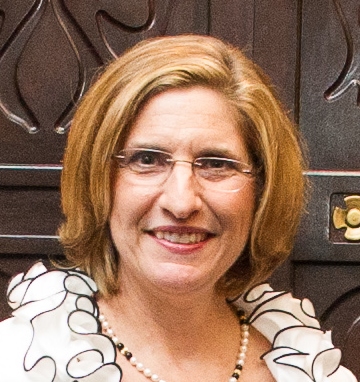Commentary on Shabbat Chanukah
I’ve always had a problem with the familiar Chanukah story, which highlights the Maccabees’ unlikely victory over the Greeks and the kindling of the menorah from one jar of oil that lasted eight nights.
“Miraculous war” surely represents a quintessential definition of oxymoron; a jar of oil burning for eight nights is a fanciful tale for children’s books. True, both Chanukah miracles undergird vital pillars of Jewish culture: the Maccabees’ victory embodies the Jewish core story of overcoming impossible odds, and the miracle of the oil reminds us of the everlasting light of Jewish faith. Yet I’ve recently come to a third understanding of the meaning of Chanukah that uncovers a deeper layer of the Chanukah message.
According to the Midrash Pesikta Rabbati, there is another interpretation of the Chanukah miracle. The Midrash teaches:
Why do we light Chanukah lamps? When the Hasmonean High Priest defeated the Greeks, as it says “For I bend Judah for Me like a bow; I filled Ephraim, and I will arouse your children, O Zion, upon your children, O Javan; and I will make you as the sword of a mighty man,” (Zechariah 9:13) they entered the Holy Temple. They found there eight iron stakes, fixed them in the ground and lit lamps upon them. (Pesikta Rabbati 2)
The verse from Zechariah acknowledges the importance of rising up to defend Zion with weapons of war. As soon as the war ends so also does the elevation of the prowess of the warriors and the celebration of weapons of war. The Maccabees enter the Temple and turn their attention to the aspirations of Isaiah 2:4: “They shall beat their swords into plowshares, their spears into pruning-hooks; nation shall not lift up sword against nation, neither shall they learn war anymore.” Eight iron stakes, the weapons of war, were out of place in the Holy Temple until the Maccabees turned them into sources of light. The Midrash thickens the story, reminding us that the war’s purpose was to reconnect the Jews to the ritual that united them before God.
Get Torah from T’ruah in your inbox each week.
Today, weapons of war proliferate, from the iron of bomb casings to the caustic declarations of white supremacists. How can we, against the odds of 21st-century civilization (or lack thereof), beat modern day weapons of war into plowshares for peace? How can we be bearers of light transforming the gloom casting shadows over these times?
 My dear colleagues Imam Abdullah Antepli, Baptist Minister Reverend Nancy Petty and I have found that light in the work we do together: educating, uniting, and advocacy. There are endless reasons for the three of us to partner in settings that highlight our religious values and the core connections between our faiths. Those occasions bring our communities together, but the light that keeps us coming back to one another runs much deeper. That light is the friendship that has been built in sharing bread, in sitting in the pews of each other’s sanctuaries, and in discerning deeper insights through learning from and with one another.
My dear colleagues Imam Abdullah Antepli, Baptist Minister Reverend Nancy Petty and I have found that light in the work we do together: educating, uniting, and advocacy. There are endless reasons for the three of us to partner in settings that highlight our religious values and the core connections between our faiths. Those occasions bring our communities together, but the light that keeps us coming back to one another runs much deeper. That light is the friendship that has been built in sharing bread, in sitting in the pews of each other’s sanctuaries, and in discerning deeper insights through learning from and with one another.
The three of us believe that the key to forging light from today’s weapons of war is building relationships. In Raleigh, North Carolina, we are doing this through modeling the behavior at a monthly Unity in Prayer service followed by a shared meal. Our goal is to create a meta-congregation. Just as our individual congregations form communities of trust and support, the meta-congregation will work to create bonds that reap benefits well outside the walls of our sanctuaries. Beyond greater interfaith understanding, more than dialogue and discerning commonalities and differences, only when we sustain real and trusting friendships with one another will we trade our armored suits for the unmatched safety found in the company of trusted, cherished companions.
Find more commentaries on Parshat Miketz.
This real miracle of Chanukah lies beyond facing our fear by rising to fight. It is more than a child’s tale of oil that burned for eight nights. The truly transformative miracle of Chanukah is that after their victory the Maccabees were able to beat their weapons of war into beacons of light and hope. When we reach out to the stranger, when we transform differences through the forging of enduring friendships, then that light will be more than a miracle of one jar of oil. It will be the reflection that comes when we look into the eyes of our brothers and sisters and know that there the light of God resides.
Rabbi Lucy Dinner serves as Senior Rabbi of Temple Beth Or in Raleigh, North Carolina. She is Vice President of Reform Judaism’s Commission on Social Action and sits on the State of North Carolina’s MLK Commission and the Commission for a Fair Census Count.


